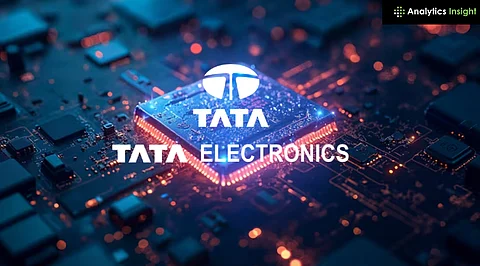

What’s New Today: Tata Electronics is building India’s first chip fab in Dholera, supported by major housing and infrastructure developments.
Fast-Track Insights: Fabheads Raises $10M to Expand Operations, Build a New Factory in Bengaluru, and Grow Its Proprietary Composite Manufacturing Technology.
Here’s a quick rundown of the biggest tech headlines making waves today. Let's dive into the day's top tech stories, from Tata Electronics' semiconductor chip fabrication to TCS Fresher Hiring.
Tata Electronics is establishing India’s first semiconductor chip fabrication facility in Dholera, Gujarat, on a Rs 91,000 crore investment basis, with production expected to start around December 2026. Residential units totaling 1,500 are being constructed to accommodate employees and partners, facilitating the project. The Gujarat government is developing infrastructure, including civic amenities and a 'Global Tent City', which will help earn Dholera the distinction of being a world-class electronics manufacturing hub.
Chennai-based deeptech startup Fabheads, founded by former ISRO engineers, has raised $10 million in Series A funding led by Accel, alongside $2.3 million in venture debt from Trifecta Capital. The funds will go toward expanding R&D, scaling operations, and constructing a new facility in Aerospace Park, Bengaluru. Fabheads' proprietary Adaptive Tow Placement (ATP) technology enables the efficient automation of composite manufacturing, reducing waste, costs, and production times in sectors such as aerospace, drones, mobility, and clean energy.
Tata Consultancy Services (TCS) is hiring freshers under three categories: Ninja, Digital, and Prime, with salaries ranging from ₹ 3.36 lakh to ₹ 11.5 lakh. Most hiring, however, is done for the lowest-paying Ninja category, indicating that entry-level IT salaries have been stagnant for over a decade. Thus, in an atmosphere of high inflation and soaring executive compensation, this outdated pay scale discriminates against the majority of engineering graduates, pointing to increasing income inequality and raising serious doubts about whether India can sustain such an IT-hiring and compensation paradigm.
Google has launched its AI search mode in India alongside voice and image inputs offered through Gemini 2.5. Search Labs provides access to this search mode, offering the ability to interrogate hallucinating queries, ask follow-up questions, and edit responses. The regional languages are, however, currently unsupported; yet, India, with the second-highest number of internet users, serves as an apt testing ground. As AI is reshaping search habits worldwide, Google is adapting to change, equipping users with next-generation tooling, despite publishers' concerns about declining traffic.
Senate Republicans on the Banking Committee have introduced principles to guide the legislation of the U.S. crypto markets. Led by Senators Scott, Lummis, Tillis, and Hagerty, the framework stresses regulatory clarity, support for innovation, and consumer protection. It comes amid clashes concerning Trump-linked crypto investments and growing bipartisan interest in digital asset oversight. The principles aim to modernize regulations, define jurisdictions, and incorporate bespoke AML measures as federal-level discussions on crypto policy intensify.
